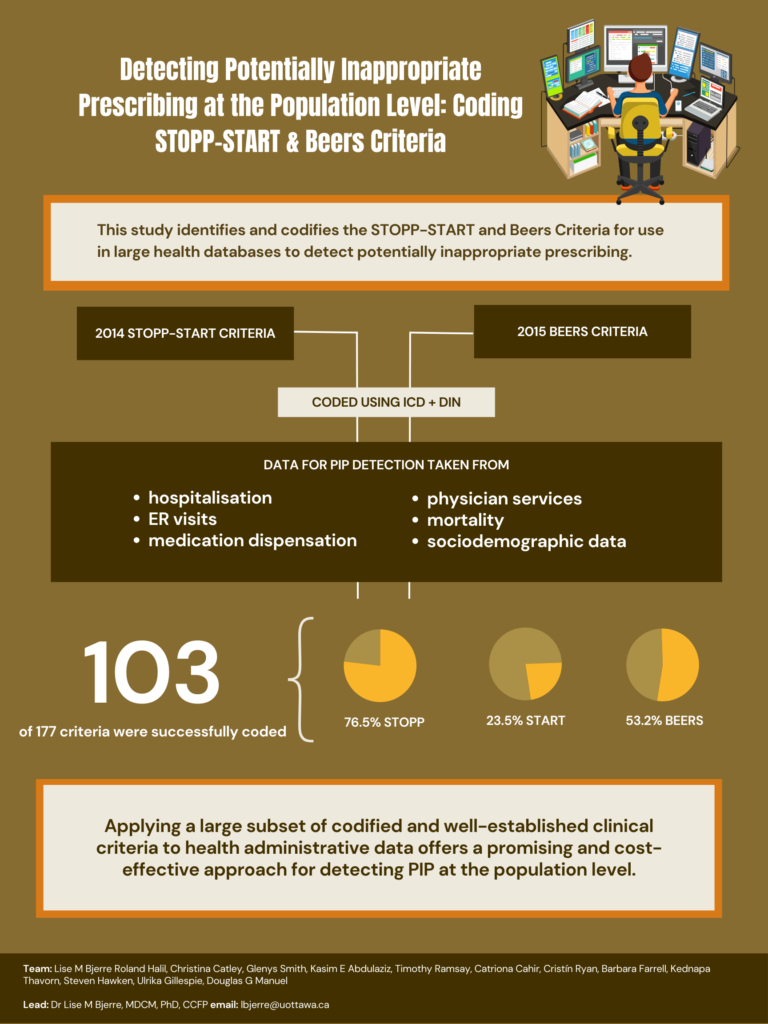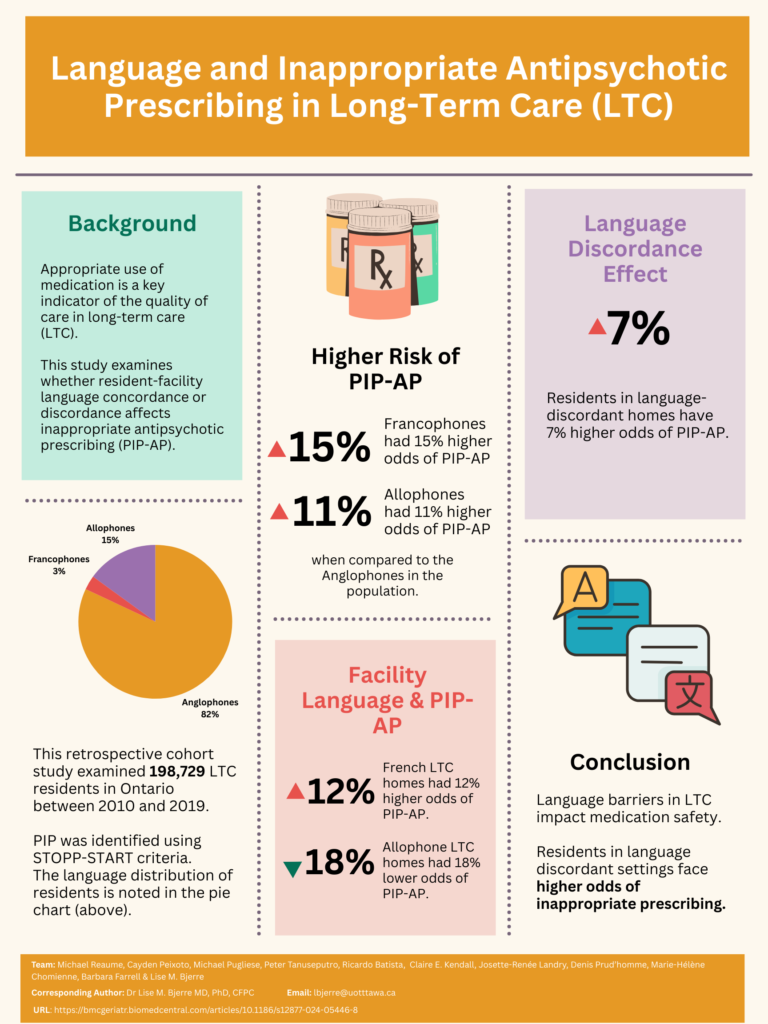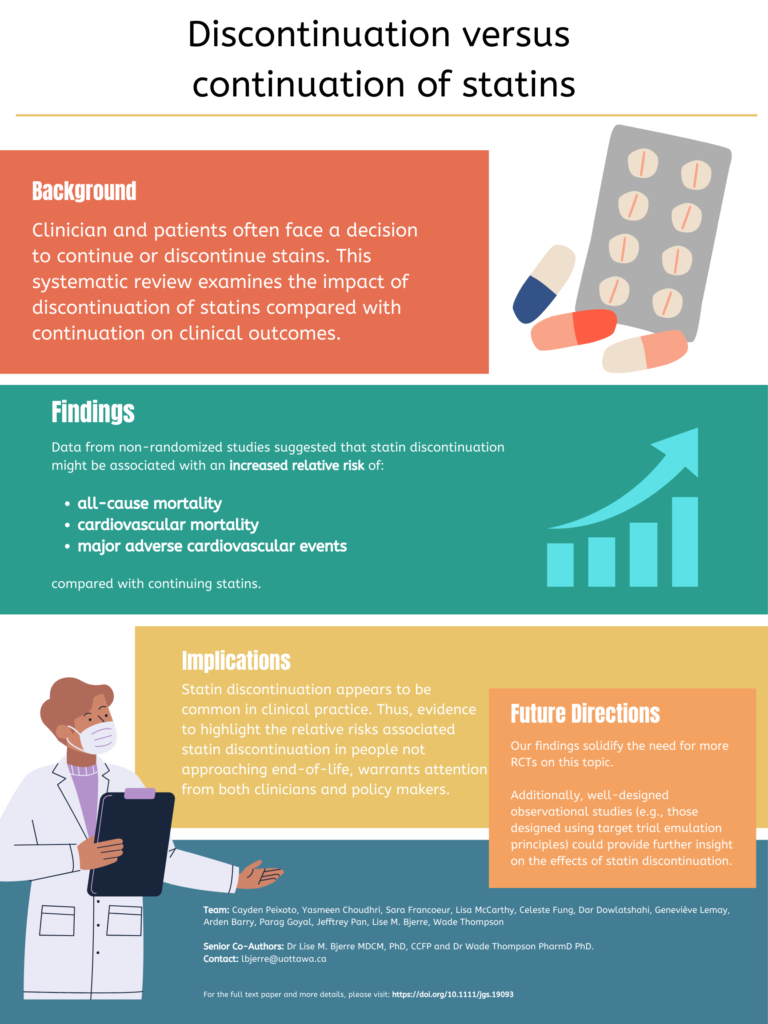Medication Appropriateness
Our group specializes in researching medication appropriateness, focusing on evaluating the costs and effects of polypharmacy and inappropriate prescribing at the population level, and the development of deprescribing guidelines to help optimize medication use across Canada and internationally. Previously, our group led the development of a clinical practice guideline for deprescribing antipsychotic medications.
FEATURED PROJECTS

Assessing Potentially Inappropriate Prescribing at the Population Level
This study codified a subset of the STOPP-START and Beers criteria using diagnostic and medication codes to identify potentially inappropriate prescribing (PIP) in Ontario’s health administrative databases. Of the 177 criteria, 58.2% were successfully coded, demonstrating the feasibility of applying these clinical guidelines at the population level. This approach offers a cost-effective method for detecting PIP and supporting health policy decisions.
Linguistic Factors and Inappropriate Prescribing in Long-Term Care
Francophones and other linguistic minorities in Ontario long-term care (LTC) homes face higher odds of potentially inappropriate antipsychotic prescribing (PIP-AP). Residents in language-discordant facilities were more likely to experience PIP-AP, highlighting how the linguistic environment can impact care quality. These findings emphasize the need for language-concordant care strategies in LTC settings.
Discontinuation versus Continuation of Statins
This systematic review explored the effects of statin discontinuation versus continuation on clinical outcomes. While an RCT found no short-term impact on mortality in patients near the end of life, non-randomized studies suggested that continuing statins may be associated with lower risks of mortality, cardiovascular death, and events. These findings highlight the potential benefits of ongoing statin use, though further research is needed.


